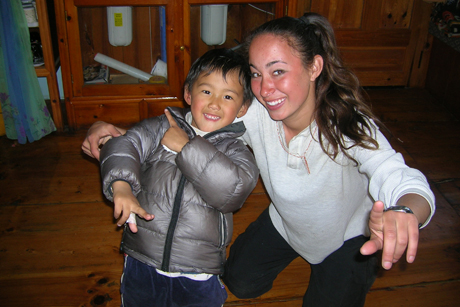Reprinted from Cornell Chronicle, June 4, 2013
Eighteen students, faculty and staff members in Cornell’s contract colleges have won State University of New York (SUNY) Chancellor’s Awards for Excellence for 2013.
“These awards underscore SUNY’s appreciation of faculty and staff who advance the boundaries of knowledge, provide the highest quality of instruction and serve SUNY and its campuses with distinction. Each of this year’s recipients has demonstrated extraordinary dedication to our students and a commitment to excellence,” said SUNY Chancellor Nancy L. Zimpher.
Those honored this year are:
- Excellence in Faculty Service: Susan Brown, the Herman M. Cohn Professor of Agricultural and Life Sciences and co-chair of the Department of Horticulture at the New York State Experiment Station in Geneva, N.Y.; John Eckenrode, professor of human development, College of Human Ecology; and Janet Scarlett, professor of epidemiology, College of Veterinary Medicine;
- Excellence in Librarianship: Jim Morris-Knower, Mann Library, College of Agriculture and Life Sciences (CALS); and Susanne Whitaker, reference librarian, Flower-Sprecher Veterinary Library;
- Excellence in Professional Service: Peter Farley, director of finance and administration, College of Human Ecology; Sarah Gould, business administrator, Department of Natural Resources, CALS; and Lynne Vrooman, finance manager, College of Veterinary Medicine;
- Excellence in Scholarship and Creative Activities: Stephen Ceci, the Helen L. Carr Professor of Developmental Psychology, College of Human Ecology; Richard Cerione, professor of pharmacology, Department of Molecular Medicine, College of Veterinary Medicine, and of chemistry and chemical biology, College of Arts and Sciences; and John March, associate professor, Department of Biological and Environmental Engineering, CALS.
- Excellence in Teaching: Sahara Byrne, assistant professor, Department of Communication, CALS; Debbie Cherney, associate professor of animal science, College of Veterinary Medicine; Daniel Fletcher, assistant professor, Section of Emergency and Critical Care, College of Veterinary Medicine; and Corinna Loeckenhoff, assistant professor of human development, College of Human Ecology; and
- Student Excellence: Carlie Arbaugh ’13, human biology, health and society, and Alice Cope ’13, policy analysis and management, both College of Human Ecology; and Ava Ryan ’13, agricultural sciences, and Sarah MacLean ’13, natural resources, both CALS.













